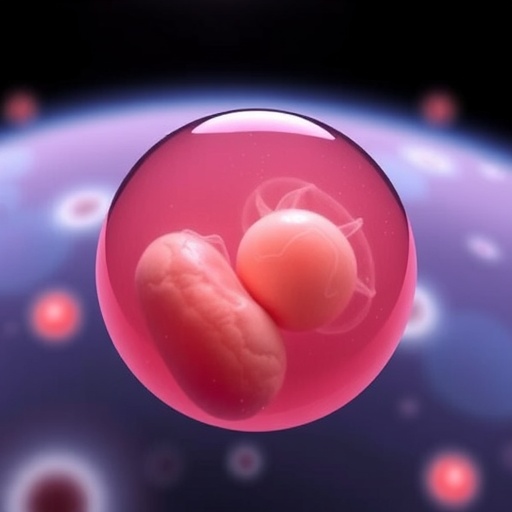A preeminent bioethicist at Hiroshima University is urging a paradigm shift in how society approaches the ethical dimensions of rapidly advancing embryo research. This call comes in response to a recent report endorsed by a Japanese government advisory panel, which brings Japan closer than ever to becoming the first nation to permit experimental research on human embryos generated from stem cell–derived sperm and eggs. With technological capabilities accelerating at an unprecedented rate, this development encapsulates the pressing need for proactive, rather than reactive, ethical scrutiny in bioscience.
In a correspondence published in the esteemed journal Nature, Professor Tsutomu Sawai, a Special Recognition Professor at Hiroshima University, articulates a compelling argument for foresight-driven ethical deliberation. He highlights the growing disconnect between rapid scientific progress and society’s capacity for deliberate ethical reflection, cautioning that the absence of such anticipatory debate could precipitate unregulated experimentation with profound moral and societal repercussions. Sawai advocates for ethicists to move beyond traditional reactive frameworks and instead engage in forward-looking conversations that set clear boundaries and governance structures ahead of emerging biotechnologies.
The urgency of this perspective is underscored by the notorious 2018 gene-edited babies scandal. In that case, a Chinese scientist employed the CRISPR-Cas9 technology to edit human embryos’ genes to confer resistance to HIV, resulting in the birth of the first gene-edited babies worldwide. This controversial act sparked widespread international condemnation due to its reckless disregard for established ethical regulations and scientific oversight. It serves as a stark example of the dangers inherent when innovation outpaces societal scrutiny and regulation, emphasizing the critical necessity for proactive governance in cutting-edge biological research.
Sawai calls for an anticipatory ethical framework that not only evaluates the social and moral consequences of embryo research at the earliest stages but also delineates clear and comprehensible limits. Such governance should be dynamic, capable of evolving in response to accumulating scientific evidence and societal feedback. Integral to this framework are stringent safeguards designed to prevent misuse of the technology, alongside unequivocal “red lines” especially concerning any credible indications of embryo sentience. This dual focus serves to balance scientific freedom with moral responsibility, ensuring research progresses ethically.
The new Japanese government panel report specifies stringent limitations in this arena. Embryo culturing is to be strictly confined to a maximum of 14 days, maintaining alignment with internationally recognized standards on embryo research duration. Additionally, the report explicitly prohibits implantation of these lab-created embryos into human or animal uteruses, effectively containing the potential for the embryos to develop beyond early stages. These measures reflect cautious optimism: enabling groundbreaking research while guarding against ethically fraught scenarios.
Presently, the capacity to derive functional sperm and eggs entirely in vitro from human pluripotent stem cells—including induced pluripotent stem (iPS) cells—remains beyond scientific reach. However, projections estimate that this capability could be realized within the next five years, heralding a transformative era for reproductive biology. This advancement holds enormous promise for developing novel treatments targeting infertility and genetic disorders, as researchers would gain unprecedented access to human gametes produced with precision and consistency in laboratory settings.
The technical challenges to achieving lab-grown gametes are substantial. Human pluripotent stem cells must undergo intricate differentiation processes, mimicking natural gametogenesis with remarkable fidelity. This includes recapitulating the complex series of epigenetic reprogramming events and cellular interactions that occur during gamete maturation. Success will require sophisticated culture media, three-dimensional organoid models, and fine-tuned signaling cues, underscoring the formidable interdisciplinary endeavors underway in developmental biology and regenerative medicine.
Sawai emphasizes that the overarching goal is not to curtail scientific innovation but to foster a regulatory environment that guides responsible progress. Ethical foresight and public discourse must be integrated early in the research pipeline to preempt conflicts and societal backlash. This approach aims to cultivate public trust and ensure that breakthroughs in embryo research translate into beneficial outcomes without compromising moral integrity or human rights.
The implications of this research trajectory extend beyond individual treatment potentials. As human embryo manipulation becomes more feasible, it raises complex questions about human identity, personhood, and the thresholds for moral consideration. The establishment of flexible yet transparent governance mechanisms will be crucial to navigating these philosophical and societal complexities. Engaging not only scientists and ethicists but also policymakers, legal experts, and the broader public is essential to developing inclusive and equitable frameworks.
Hiroshima University, known for its comprehensive research excellence across natural sciences, humanities, and social sciences, provides a critical intellectual hub for bioethical inquiry in Japan. Professor Sawai’s contributions reflect the institution’s commitment to integrating interdisciplinary scholarship with societal impact, influencing policy and setting ethical standards amid technological frontiers. His involvement in various bioethics committees and editorial roles further substantiates his credibility and dedication to advancing ethical discourse in life sciences.
The Japanese policy updates signal a pivotal moment for embryo research worldwide, spotlighting a delicate balance between scientific advancement and ethical stewardship. As the global community observes these developments, the necessity for international collaboration and harmonized standards becomes more apparent. Responsible innovation in stem cell-derived gamete and embryo research could revolutionize medicine, but only if accompanied by vigilant ethical governance and sustained societal engagement.
Ultimately, the future trajectory of embryo research will depend on how effectively societies can anticipate and address the profound ethical challenges it entails. The call to action from Professor Sawai and his colleagues is a reminder that anticipating the implications of scientific discovery is not merely advisable but imperative. This proactive stance promises to guide humanity through complex scientific frontiers with wisdom and integrity, ensuring that progress embraces both innovation and ethical consciousness.
Subject of Research: Ethical governance and anticipation in human embryo research involving stem cell–derived sperm and eggs.
Article Title: Ethics must keep pace with embryo research
News Publication Date: 28-Oct-2025
Web References:
https://www.nature.com/articles/d41586-025-03502-w
https://www.nature.com/articles/d41586-024-01404-x
https://asia.nikkei.com/business/science/japan-panel-oks-creating-human-fertilized-eggs-with-ips-cells-for-research
References:
Tsutomu Sawai, “Ethics must keep pace with embryo research,” Nature, Vol. 646, 28 October 2025.
Keywords: Ethics, Research ethics, Medical ethics, Embryo research, Bioethics, Stem cell technology, iPS cells, Human gametes, Anticipatory governance, CRISPR, Gene editing, Regulatory frameworks




